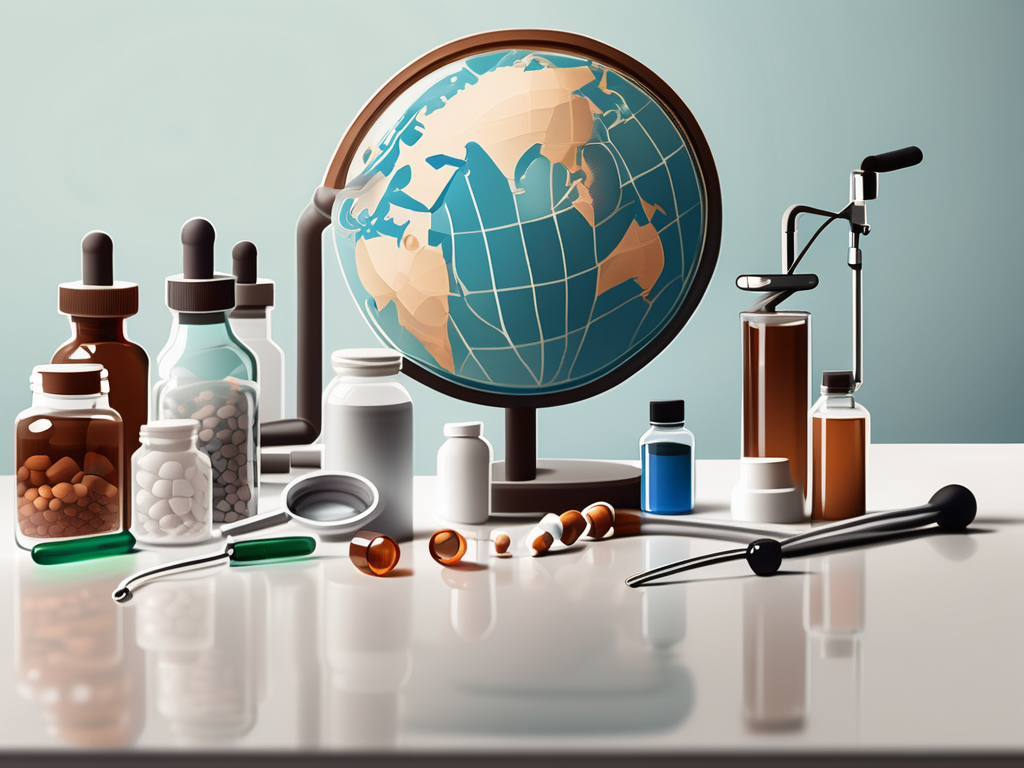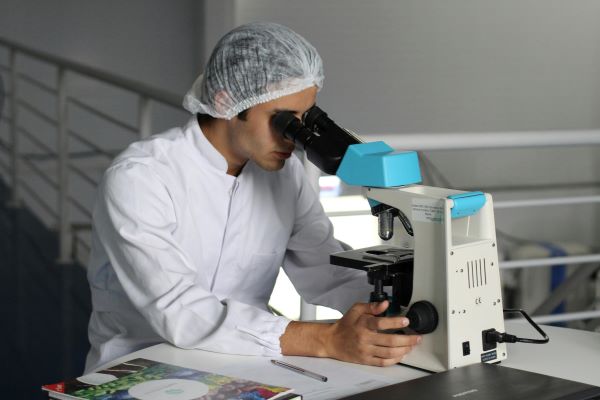
Quick CV Dropoff
Send us your CV

Medical affairs play a crucial role in the healthcare industry, supporting the delivery of high-quality patient care. Healthcare is a complex field that requires interdisciplinary collaboration, effective communication, adherence to regulations, and a strong focus on research and development. In this article, we will explore the diverse roles and responsibilities of medical affairs professionals and their impact on patient care, healthcare policy, research, and development. We will also discuss the future of medical affairs and the emerging trends and challenges that lie ahead.
Medical affairs encompasses a wide range of activities that bridge the gap between healthcare providers, pharmaceutical companies, and regulatory agencies. This interdisciplinary nature of medical affairs ensures that all stakeholders work together seamlessly to optimise patient care. The medical affairs team comprises professionals from various backgrounds, including medical and scientific experts, who bring their expertise to bear on the diverse challenges faced by healthcare organisations.
Medical affairs professionals are at the forefront of healthcare innovation and play a crucial role in shaping the future of medicine. They are responsible for staying up-to-date with the latest advancements in medical research and technology, ensuring that healthcare providers have access to the most cutting-edge treatments and therapies.
The success of medical affairs relies on effective collaboration and communication across different departments within both healthcare institutions and pharmaceutical companies. Medical affairs professionals work closely with clinicians, researchers, regulatory affairs personnel, and marketing teams to ensure that patient care is safe, effective, and evidence-based.
Collaboration between medical affairs professionals and clinicians is particularly important in the development and implementation of clinical guidelines. These guidelines serve as a roadmap for healthcare providers, outlining the best practices for diagnosing and treating various medical conditions. By working together, medical affairs professionals and clinicians can ensure that these guidelines are based on the most up-to-date evidence and reflect the needs of patients.
Medical affairs professionals have a broad range of responsibilities that revolve around ensuring the quality and safety of healthcare delivery. They are actively involved in activities such as providing medical education to healthcare professionals, supporting clinical trials, conducting post-marketing surveillance, and addressing safety concerns.
One of the key responsibilities of medical affairs professionals is to provide medical education and training to healthcare professionals. They organise and facilitate educational programs, conferences, and workshops to ensure that healthcare providers are equipped with the knowledge and skills necessary to deliver high-quality care. By staying informed about the latest research and treatment options, medical affairs professionals can empower healthcare providers to make informed decisions for their patients.
Furthermore, medical affairs professionals also play a pivotal role in facilitating effective communication between healthcare providers and pharmaceutical companies. They act as a bridge between these two entities, ensuring that vital medical information is shared accurately and transparently to support safe and effective patient care.
Medical affairs professionals are responsible for providing healthcare providers with the necessary information about new drugs, including their indications, contraindications, and potential side effects. They also collaborate with pharmaceutical companies to gather feedback from healthcare providers, helping to shape the development and improvement of new therapies.
In addition to their roles in education and communication, medical affairs professionals are actively involved in supporting clinical trials. They work closely with researchers and regulatory affairs personnel to ensure that clinical trials are conducted ethically and in compliance with regulatory requirements. By overseeing the design and execution of clinical trials, medical affairs professionals contribute to the generation of robust clinical evidence that informs treatment decisions.
Medical affairs professionals also play a critical role in post-marketing surveillance. They monitor the safety and efficacy of drugs and medical devices after they have been approved for use. By collecting and analysing real-world data, medical affairs professionals can identify potential safety concerns and take appropriate measures to protect patient health.
One of the fundamental goals of medical affairs is to ensure that patient care is of the highest quality. This involves a range of activities aimed at maintaining and improving healthcare standards.
Medical affairs professionals work diligently to uphold rigorous quality standards and ensure patient safety. They collaborate closely with regulatory agencies to develop and implement policies and procedures that minimise risks and maximise positive outcomes.
Through their expertise in data analysis and interpretation, medical affairs professionals contribute to evidence-based decision-making, enabling healthcare providers to offer the most appropriate treatment options to patients.
Clear and effective communication is essential for the delivery of high-quality patient care. Medical affairs professionals play a vital role in fostering effective communication between healthcare providers, patients, and pharmaceutical companies.
They ensure that cutting-edge medical and scientific information is shared with healthcare professionals in a manner that is easily understandable and applicable to their daily practice. This enhances clinical decision-making and empowers healthcare providers to deliver the best possible care to their patients.
Medical affairs professionals exert significant influence on healthcare systems and policies, leveraging their expertise to advocate for patient rights and access to care.
Medical affairs professionals collaborate with regulatory bodies to ensure that healthcare regulations and standards are in place to safeguard patients' interests. They provide insights and scientific expertise to shape policies that promote safe and effective healthcare delivery.
By actively participating in the development of guidelines and protocols, medical affairs professionals play a critical role in promoting evidence-based practices that enhance patient outcomes.
Medical affairs professionals also serve as advocates for patients, working to ensure that they have timely access to quality healthcare services. They help identify gaps and disparities in healthcare delivery and collaborate with healthcare providers and policymakers to address these issues.
Advocacy efforts may include influencing policy decisions, promoting equitable access to healthcare, raising awareness about patient rights, and supporting initiatives that improve healthcare outcomes for all individuals.
Research and development are the backbone of medical advancements and improving patient care. Medical affairs professionals play a vital role in bridging the gap between research discoveries and clinical practice.
Medical affairs professionals collaborate with researchers, clinicians, and product development teams to ensure that scientific discoveries translate into effective clinical interventions. Through their deep understanding of both the research and clinical realms, they ensure that medical advancements are effectively implemented in healthcare settings.
By actively engaging with healthcare professionals, medical affairs professionals identify areas where new research can address unmet clinical needs, thereby supporting the development of innovative therapies and treatments that benefit patients.
Medical affairs professionals have a responsibility to ensure that all medical research conducted adheres to strict ethical guidelines. They work closely with researchers to ensure that clinical trials are designed and conducted in a manner that prioritises patient safety and welfare.
Medical affairs professionals also play a crucial role in ensuring that researchers adhere to regulatory requirements and guidelines, preventing misconduct and ensuring the integrity of medical research.
The field of medical affairs is continuously evolving, driven by emerging trends and challenges. Adapting to technological advancements and addressing evolving healthcare needs will be key for the future of medical affairs.
New technologies, such as artificial intelligence and big data analytics, are revolutionising healthcare delivery. Medical affairs professionals need to stay abreast of these trends and understand how to harness them to enhance patient care and drive positive outcomes.
Additionally, the increasing emphasis on personalised medicine calls for medical affairs professionals to navigate complex genetic and molecular data, enabling them to support healthcare providers in tailoring treatment plans to individual patients.
Technology will undoubtedly play a central role in shaping the future of medical affairs. From leveraging data analytics to identify clinical gaps and trends to utilising telemedicine and remote monitoring technologies to expand access to specialised care, medical affairs professionals will need to embrace and harness technology to meet the evolving needs of patients and healthcare providers.
Medical affairs professionals are integral to the healthcare industry, playing diverse roles that extend beyond the realms of patient care, research, and policy. Their interdisciplinary expertise, commitment to quality and safety, and focus on ethical conduct contribute to the advancement of healthcare and better patient outcomes.
Be a driving force in the evolving landscape of healthcare delivery, ensuring better patient outcomes. Contact us today to explore opportunities that will empower you to contribute significantly to the advancement of healthcare. Let's together build a healthier and brighter future. Your career in medical affairs starts with us – reach out now